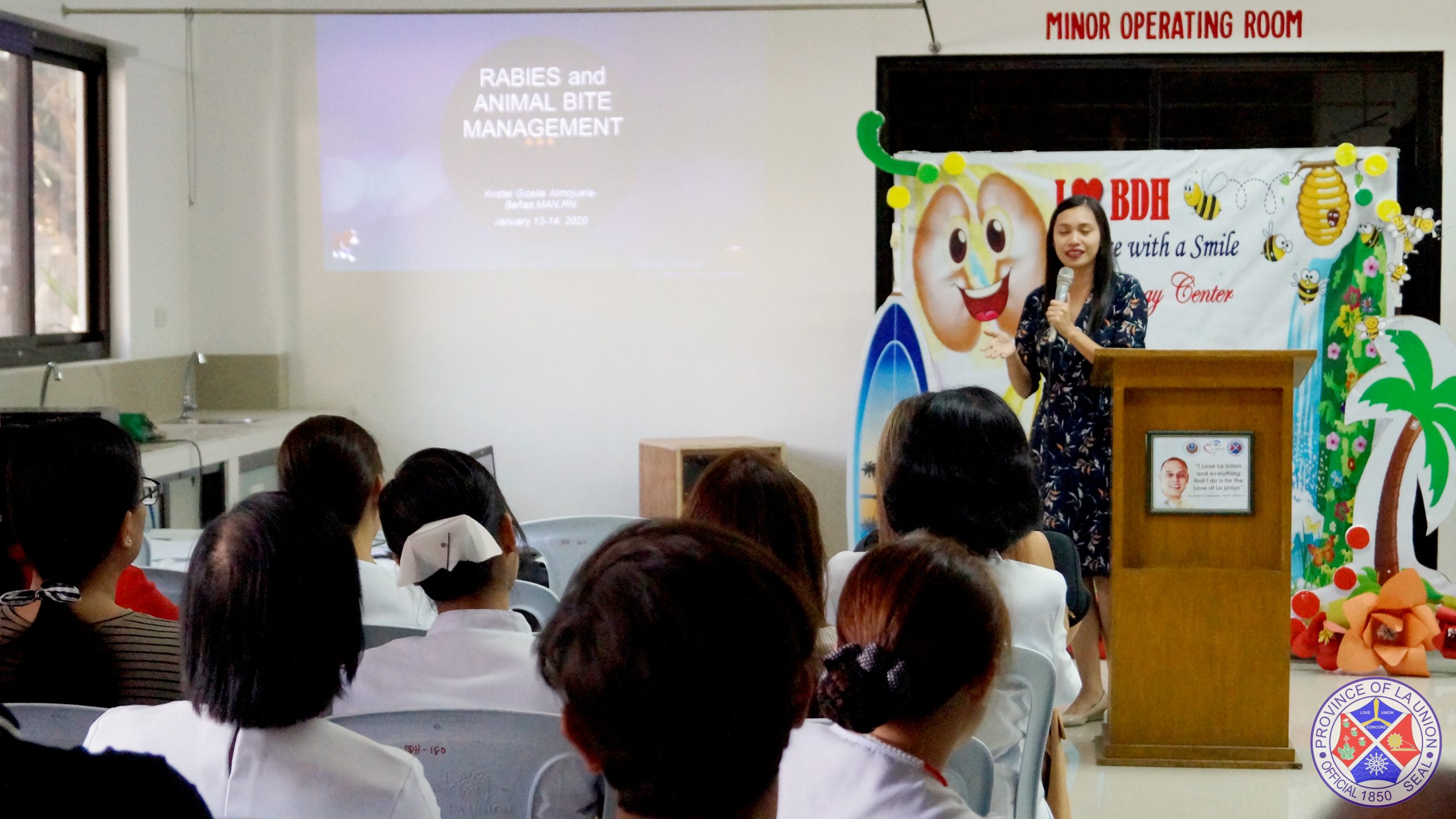BDH HOLDS RABIES LECTURE-SEMINAR TO PERSONNEL
By: Melanie Holt, GPC-BDH | Photo By: Mhark Parchamento | Date: January 13-14, 2020

RABIES, THE DISEASE. Ms. Kristel Gizelle Beñas, A. resource speaker and trainor from Ilocos Training and Regional Medical Center, discusses exposure categories and vaccination regimen to personnel of Bacnotan District Hospital (BDH) during the lecture-seminar about the new guidelines on Rabies and Animal Bite Management and Infection Control on January 13 – 14, 2020 at BDH, Bacnotan, La Union. This activity aimed to make BDH personnel updated since the hospital is one of the animal bite treatment centers in La Union.
Bacnotan District Hospital (BDH) held a lecture-seminar about the new guidelines on Rabies and Animal Bite Management and Infection Control to its personnel on January 13 – 14, 2020 with Ms. Kristel Gizelle A. Beñas of Ilocos Training and Regional Medical Center as resource speaker and trainor.
In the lecture, it was defined that rabies is a zoonosis and a human infection that usually occurs following a bite or scratch on the skin by an infected animal. Its incubation period, between exposure to an infection and the appearance of the first symptom, is from five days to more than two years. Humans infected experience tingling or numbness at the bite site, hydrophobia, aerophobia, photophobia, comatose and death.
Ms. Beñas mentioned that an infected person can transmit rabies through bites, contamination of open skin wounds or mucous membranes with body fluids and organ transplantation.
She highlighted that vaccination of dogs is the most effective and cost-effective prevention. Moreover, she cited that all dogs and cats can transmit rabies even if they are kept as pets. She said that as much as 88% of human rabies patients were bitten by pets. She then added that all warm-blooded animals can transmit rabies which also includes other domestic animals like cows, pigs, horses, goats, and the like. Animals that are healthy at the time of the bite should be observed for 14 days if they become sick.
The speaker advised to wash exposed skin or wound immediately with soap and water when bitten or scratched, then, visit an animal bite treatment center to start vaccination immediately. She warned that traditional remedies like “tandok” are not effective and may delay proper treatment, possibly resulting to secondary bacterial infection. She assured that there is no contraindication to rabies vaccination.
Exposure categories and vaccination regimen were specifically discussed during the lecture. This activity aimed to make BDH personnel updated since the hospital is one of the animal bite treatment centers in La Union.
Recent Posts
Discover Monsterpot, one of the most unique La Union tourist spots, where you can explore real carnivorous plants.
The Provincial Government of La Union (PGLU) has completed and turned over three major school infrastructure projects in three municipalities …
The Provincial Government of La Union (PGLU), in partnership with the Department of Agriculture (DA-RFO1), concluded the Provincial Rice Technology …
Rocapor’s Farm is an agri-tourism site in La Union that has a learning institution and uplifts the local community.
In line with the province’s hosting of the 2025 Region 1 Athletic Association (R1AA), the Provincial Government of La Union …



















